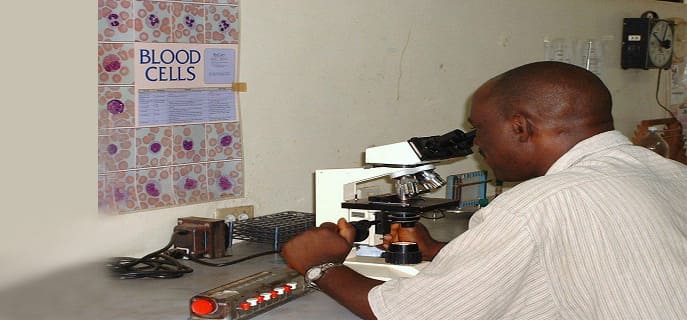Healthcare and allied fields offer a wide array of career opportunities. If you get proper training from reputed institutes and acquire relevant experience you can grow in your career and earn well in your job.
One of the fastest growing streams in allied-health field is phlebotomy. If you are aiming for a well-paying and bright career in this sector you will do well to learn more about phlebotomy and its exciting growth prospects.
A phlebotomist is a specialized clinical support worker who collects blood from patients for testing and examination in laboratories. It is the first step involved in determining the accurate health condition of a person.
The term ‘phlebotomy’ is derived from Greek words ‘phlebo’ which means pertaining to blood vessel and ‘tomy’ which means making an incision. A phlebotomist will be able to make a proper incision in a vein and take blood sample from the body safely.
Let us learn more about this exciting career opportunity.
What Are the Duties and Responsibilities of a Phlebotomist?
As a phlebotomist you are responsible for collecting blood and other specimen samples from patients. The process of collecting blood from veins is called venipuncture.
You will be trained in the scientific process of bloodletting using a tourniquet and a butterfly needle. You will have to collect blood samples in different tubes containing specific additives and send them for various lab tests.
Since you may deal with patients having severe illnesses and handle infectious samples, you will also be trained in the use of protective gear like gloves and masks which are essential to avoid accidents.
Another responsibility of a phlebotomist is the safe disposal of used syringes, tubes and other medical wastes. You also need to develop effective communication skills to pacify and calm worried patients.
What Are the Educational Requirements?
You can join a phlebotomist program if you have completed your high school diploma or equivalent, or GED (General Education Development test). Some programs also require you to submit proof of certain immunizations.
What Are the Relevant Educational Programs for Becoming a Phlebotomist?
To practice as a phlebotomist you need to complete a certificate program, an associate’s degree or a bachelor’s degree in phlebotomy or clinical laboratory technology.
What course of study you go for should be determined by where you want to be perched on the career ladder, a few years down the lane.
If you aim to jump start your career then a certificate program will be good for you. You will get trained intensively and exclusively in techniques, procedures, equipment, medical terminology and human physiology relevant to phlebotomy. Certificate programs are brief and give you adequate classroom instruction and practical training.
An associate’s degree will give you a more comprehensive training focusing on general education as well as developing your phlebotomy skills. This will help you get into more specialized roles in the future like that of a lab technician or a medical assistant. An associate’s degree also gives you more flexibility after graduation.
A bachelor’s degree is more time consuming and advanced in the training it offers. The degree prepares you for supervisory jobs and more specialized roles like that of a medical technologist.
American Institute of Healthcare and Technology provides Phlebotomy Technician Training in CT.
What Are the Additional Skills You Develop as Part of Phlebotomy Curriculum?
In addition to phlebotomy skills you also will attain substantial knowledge of relevant medical chemistry. This is needed for proper understanding of the process of phlebotomy.
Thorough knowledge of human anatomy and physiology will help you deal with potential complications during blood extraction. You will also be trained to assemble, adjust, maintain and use lab equipment in a proper manner.
Phlebotomy involves expert knowledge in collecting and culturing specimen samples from the patients. You will be trained in medical information systems and will learn to enter patient data and information following proper protocols and procedures.
Reputed phlebotomy programs also include courses in human psychology and interpersonal communication. You need to polish up your people skills which will help you communicate with patients, calm them down and analyze any visible symptoms.
What Are the Certification Requirements for a Phlebotomist?
After you have successfully completed your educational training you need to be certified by a reputed and recognized body. Major associations offering certifications in the US include the American Society for Clinical Pathology (ASCP), the National Phlebotomy Association (NPA) and the American Medical Technologists (AMT).
It is necessary that you gain practical experience in addition to classroom training. This will give you hands-on experience that employers value and look for.
Each state will have different rules and regulations regarding licensing and legislation requirements. There are also state-specific regulations pertaining to the minimum qualifications needed to practice as a phlebotomist.
Check what is applicable in your area and follow all guidelines.
Salary Outlook
When you start out as a phlebotomist you can expect a healthy annual salary in the median range of $20,000- $25,000. The average salary of a phlebotomy technician in Connecticut is between $33,500- $35,000 per annum. Your earnings also go up as you gain more experience and supplement your education and qualifications.
Conclusion
As per Bureau of Labor Statistics estimates, employment for phlebotomists is expected to grow at a rate of 10% through 2018. So be a part of this growing sector and you can very well place your career on a fast track.




